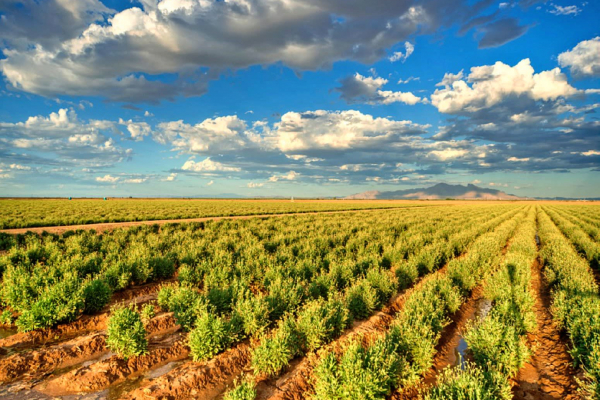Rice Bran and Beans - They’re What’s for Dinner

It’s a running joke in the laboratory of CSU researcher Elizabeth Ryan: After every presentation, at least one audience member will proclaim plans to eat beans for dinner.
That’s because the Ryan Lab in the College of Veterinary Medicine and Biomedical Sciences studies the potential power of navy beans and rice bran to promote digestive health and to prevent metabolic alterations in obesity, heart disease and certain cancers.
In collaboration with the University of Colorado Cancer Center, Ryan’s latest clinical trials confirm that people can eat enough bean- and rice bran-enhanced foods to promote gut health at levels shown to prevent colorectal cancer in animals.
Ryan and her long-time collaborator, Dr. Regina Brown, an oncologist with UCHealth, will present their latest findings on the nutritional and cancer-fighting benefits of rice bran and navy beans at the annual American Association of Cancer Research meeting in Washington, D.C., this week.
Guidelines from the American Institute for Cancer Research recommend reducing the risk of cancer by eating more vegetables, fruits, whole grains and legumes, such as beans. Ryan has established from these studies that eating a half-cup of beans and 30 grams of rice bran per day is enough to see changes in small molecules that can confer protection against colorectal cancer – now it’s just a matter of getting people to eat them.
“The evidence is there in animals and we can now study this in people. The question is, what are we doing to achieve adequate levels of intake of these foods?” Ryan said. “It’s not enough to say ‘I eat them once in a while.’ That’s not going to work, particularly if you are at higher risk. You have to meet a dose, just like you need a dose of a certain drug, you need to reach intake levels and consume increased amounts of these foods, and that’s where people, including me, are challenged. Not everyone wants to open up a can of beans and eat them every day.”
But people will eat granola, cookies, pizza dough and soups made with cooked dry bean powders and rice bran that provide the same level of cancer-fighting phytochemicals, Ryan and her team confirmed in a recent study with cancer survivors, published online in the Journal of Nutrition and Cancer.
The study’s lead author is Erica Borresen, Ryan’s research associate and study coordinator, who worked with colorectal cancer survivors to make sure they ate their beans and rice bran provided in meals and snacks, and that they filled out their food logs and gastrointestinal health questionnaires. It was sometimes intimate and awkward, but so is getting a colonoscopy and being treated for colorectal cancer.
“Our participants donated their time and effort, and I want to make sure they understand they are appreciated,” said Borresen, who earned her Master of Public Health at the Colorado School of Public Health, and plans to become a physician’s assistant. “I came to realize I love the patient interaction – that’s one of my favorite parts about coordinating our studies.”
The next phase of Ryan’s research examines effects of the cooked navy bean powder and rice bran on the colon tissue of people who have already had colorectal cancer and are at high risk for recurrence.
Food as Medicine
“I can do a human trial here at CSU, thanks to our ongoing collaboration with UCHealth oncologists,” said Ryan, a toxicologist based in the CSU Department of Environmental and Radiological Health Sciences who collaborates with the Department of Food Science and Human Nutrition, and teaches in the Colorado School of Public Health. Her work crosses traditional academic boundaries, incorporating plant science, human and animal nutrition, cancer research, and private and public sector partnerships.
Ryan’s work integrates findings from laboratory models, companion animals and human trials as part of a research project called BENEFIT, an acronym for Beans/Bran Enriching Nutritional Eating For Intestinal Health Trials. Ryan has led BENEFIT trials in the community to boost knowledge about how these simple foods affect human health.
“The simple message is, ‘Food is medicine,’ and we are looking at how to simplify that and make it apply to our everyday lives,” said Brown.
The two met about 10 years ago, when Ryan was a researcher in CSU professor Henry Thompson’s Cancer Prevention Lab, and Brown was practicing medicine in Fort Collins and caring for her mother, who had uterine cancer.
“It was kind of a novel partnership and had we not dug in our heels it could have died, but I told Elizabeth, ‘Your work is so interesting and so valuable. We have to take this translational research from the benchtop to the clinic.’ I guarantee, nine out of 10 of my patients, the first thing they ask is about their diet,” Brown said.
From the ‘Benchtop to the Clinic’ Becoming a Reality
Ryan and Brown began working together in 2009. Now they are presenting the fruits of their nutrition research in a cancer prevention poster session at the international gathering of researchers and physicians. The National Institutes of Health and the National Institute of Food and Agriculture fund the research in their presentation.
“You have a big ole poster that talks about your research plan, goals and data to help other scientists and clinicians to understand our work,” explained Brown, who is an assistant professor at the University of Colorado School of Medicine, and medical director of oncology at Lone Tree Health Center. “It can be helpful in answering their own questions, and it’s a way for us to establish other collaborations. That’s the true exciting part of being invited to this conference.”
What might those collaborations look like?
“If we want to get people to adhere to these recommendations and guidelines, we need to run more population-based studies,” Ryan said.
“We need to understand what it means to look at circulating levels of phytochemicals from beans and rice bran in large groups of people of different sizes, shapes, ethnicities, races, because right now we are seeing colorectal cancers rise in younger people across these demographics, not just high-risk populations.”
Looking ahead, Ryan would like to see more discussion about prevention in the cancer community.
“We don’t have a dialogue yet about translating dietary and physical activity cancer control and prevention recommendations to humans that will have public health impact,” she said. “I really feel that there’s hope in this being a practical solution to improve gut health and specifically colorectal cancer prevention.”
She would also like to see rice bran and bean powders in commercially available foods. “It’s going to require a business strategy, a food-industry strategy,” she said. “Why not have rice bran and bean-based doughs and soups available to buy ready-made so people can meet these nutritional recommendations?”
After this week’s presentation, you can bet a bunch of cancer doctors will be having beans for dinner.
Reprinted from Colorado State University "Source"


